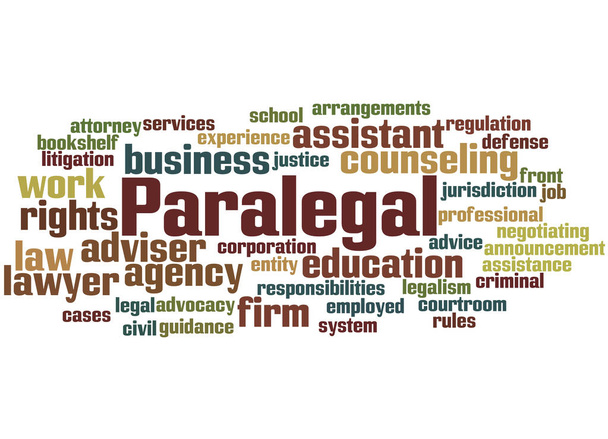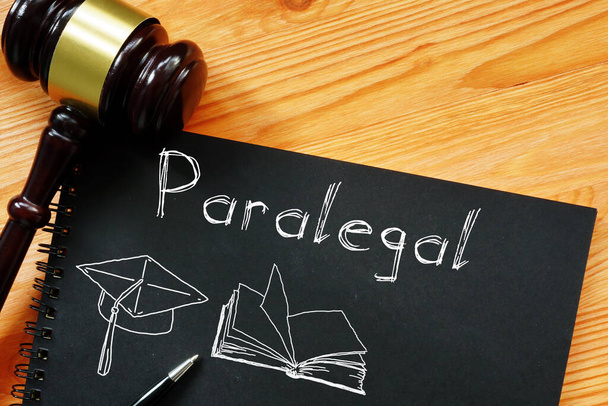Paralegals play a crucial role in the legal field, offering essential support to attorneys and law firms. They are often the unsung heroes behind the scenes, helping ensure the smooth operation of legal proceedings. In this blog post, we’ll delve into the world of paralegal support, answering two fundamental questions: What is paralegal support, and what knowledge do paralegals need to excel in their roles? Whether you’re considering a career as a paralegal or seeking their assistance, understanding these aspects is vital.

What is Paralegal Support?
Paralegal support refers to the valuable assistance provided by professionals known as paralegals or legal assistants. Paralegals work alongside lawyers to perform various tasks that are essential to the legal process. While they cannot provide legal advice or represent clients in court, their contributions are indispensable in ensuring the efficient functioning of legal matters.
Key Roles of Paralegals:
- Legal Research: Paralegals conduct extensive legal research to gather information relevant to a case. This includes reviewing statutes, regulations, case law, and legal precedent to support attorneys in building their arguments.
- Document Preparation: Paralegals draft legal documents such as contracts, pleadings, and briefs. Their attention to detail and knowledge of legal terminology are crucial in creating accurate and well-organized documents.
- Case Management: They assist in managing cases by organizing files, maintaining calendars, and tracking deadlines. This ensures that attorneys stay on top of their caseloads and never miss crucial dates.
- Client Interaction: Paralegals often interact with clients to gather information, schedule appointments, and provide updates on the progress of their cases. Effective communication skills are essential in this aspect of their role.
- Court Support: While paralegals cannot represent clients in court, they play a vital role in preparing attorneys for hearings and trials. This includes gathering evidence, scheduling witnesses, and preparing exhibits.
- Administrative Tasks: Paralegals also handle various administrative duties, such as managing billing and invoicing, maintaining office records, and coordinating meetings.
What Knowledge Do Paralegals Need?
- Legal Research and Writing: A strong understanding of legal research methods and the ability to write clearly and persuasively are essential skills for paralegals. They must be adept at using legal databases, libraries, and online resources to find relevant information.
- Legal Terminology: Paralegals need to be well-versed in legal terminology to effectively communicate with attorneys, clients, and court personnel. This knowledge ensures accuracy in drafting legal documents and correspondence.
- Substantive Law: While paralegals cannot provide legal advice, they must have a solid understanding of substantive law in areas such as criminal, family, real estate, or corporate law. This knowledge helps them assist attorneys in building cases.
- Technology Proficiency: Paralegals should be comfortable using legal software, document management systems, and e-discovery tools. Staying up-to-date with technological advancements is crucial in today’s legal landscape.
- Ethical Guidelines: Paralegals must adhere to ethical guidelines and maintain client confidentiality. Understanding and practicing these principles is a fundamental aspect of their role.
- Communication Skills: Effective communication, both written and verbal, is essential for paralegals. They often serve as a bridge between attorneys and clients, making strong interpersonal skills crucial.

Conclusion
In summary, paralegal support is a vital component of the legal profession. Paralegals take on a wide range of responsibilities, from conducting legal research to assisting with document preparation and client interaction. To excel in their roles, paralegals must possess a solid foundation of legal knowledge, strong research and writing skills, and proficiency in legal technology. By understanding the crucial role they play and the knowledge they need, you can better appreciate the valuable contributions paralegals make to the legal field. Whether you’re considering a career as a paralegal or seeking their assistance, their expertise and support are indispensable in the pursuit of justice.
Learn more at Wiki as well.